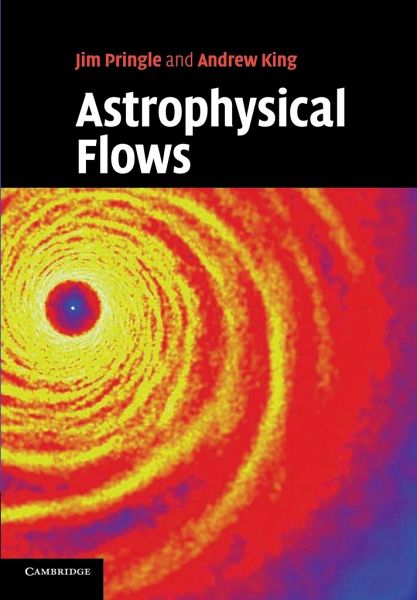
Astrophysical Flows
Versandkostenfrei!
Versandfertig in 1-2 Wochen
52,99 €
inkl. MwSt.

PAYBACK Punkte
26 °P sammeln!
Almost all conventional matter in the Universe is fluid, and fluid dynamics plays a crucial role in astrophysics. This graduate textbook, first published in 2007, provides a basic understanding of the fluid dynamical processes relevant to astrophysics. The mathematics used to describe these processes is simplified to bring out the underlying physics. The authors cover many topics, including wave propagation, shocks, spherical flows, stellar oscillations, the instabilities caused by effects such as magnetic fields, thermal driving, gravity, shear flows, and the basic concepts of compressible fl...
Almost all conventional matter in the Universe is fluid, and fluid dynamics plays a crucial role in astrophysics. This graduate textbook, first published in 2007, provides a basic understanding of the fluid dynamical processes relevant to astrophysics. The mathematics used to describe these processes is simplified to bring out the underlying physics. The authors cover many topics, including wave propagation, shocks, spherical flows, stellar oscillations, the instabilities caused by effects such as magnetic fields, thermal driving, gravity, shear flows, and the basic concepts of compressible fluid dynamics and magnetohydrodynamics. The authors are Directors of the UK Astrophysical Fluids Facility (UKAFF) at the University of Leicester, and editors of the Cambridge Astrophysics Series. This book has been developed from a course in astrophysical fluid dynamics taught at the University of Cambridge. It is suitable for graduate students in astrophysics, physics and applied mathematics, and requires only a basic familiarity with fluid dynamics.




